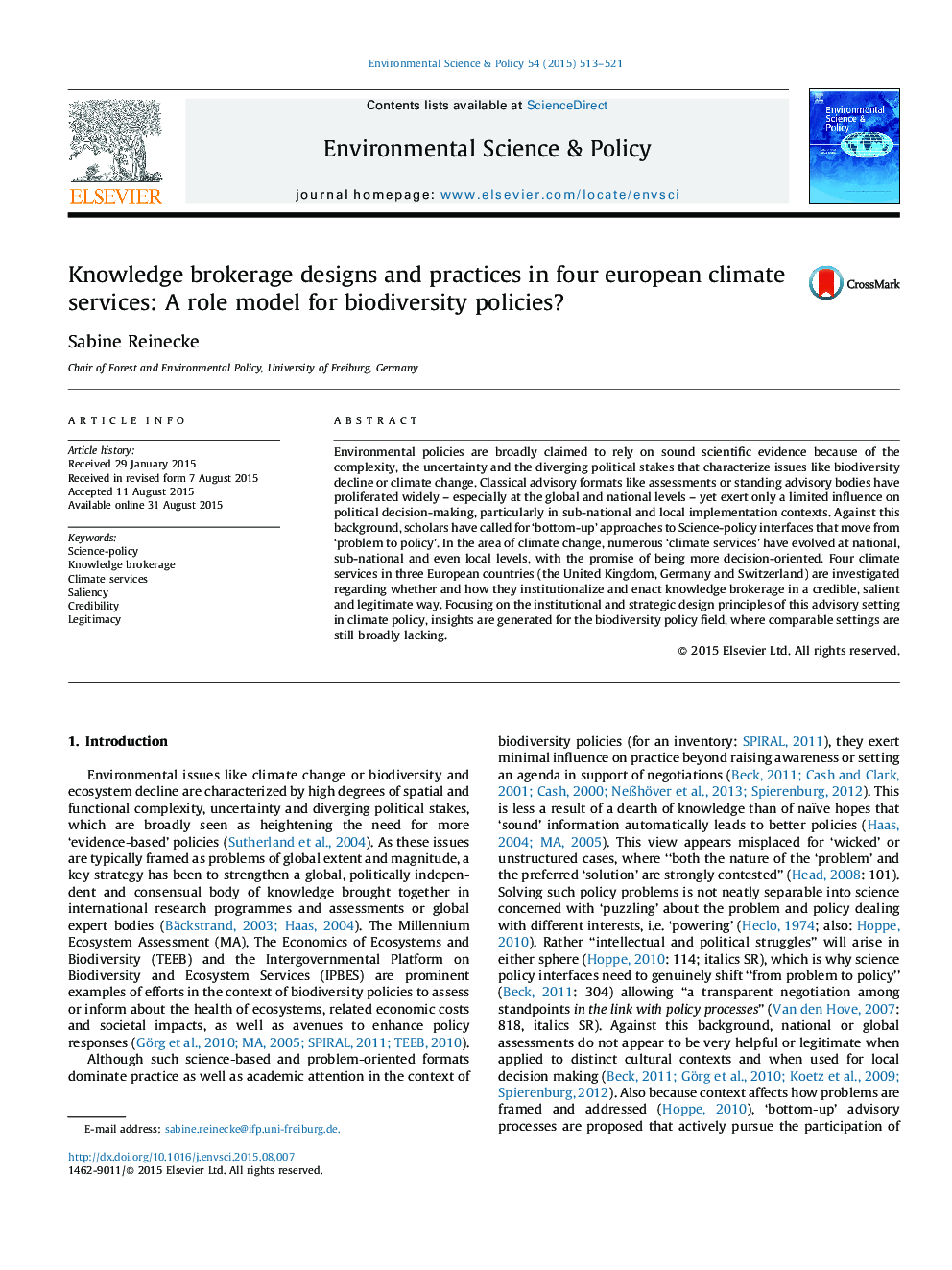| Article ID | Journal | Published Year | Pages | File Type |
|---|---|---|---|---|
| 7467131 | Environmental Science & Policy | 2015 | 9 Pages |
Abstract
Environmental policies are broadly claimed to rely on sound scientific evidence because of the complexity, the uncertainty and the diverging political stakes that characterize issues like biodiversity decline or climate change. Classical advisory formats like assessments or standing advisory bodies have proliferated widely - especially at the global and national levels - yet exert only a limited influence on political decision-making, particularly in sub-national and local implementation contexts. Against this background, scholars have called for 'bottom-up' approaches to Science-policy interfaces that move from 'problem to policy'. In the area of climate change, numerous 'climate services' have evolved at national, sub-national and even local levels, with the promise of being more decision-oriented. Four climate services in three European countries (the United Kingdom, Germany and Switzerland) are investigated regarding whether and how they institutionalize and enact knowledge brokerage in a credible, salient and legitimate way. Focusing on the institutional and strategic design principles of this advisory setting in climate policy, insights are generated for the biodiversity policy field, where comparable settings are still broadly lacking.
Related Topics
Physical Sciences and Engineering
Energy
Renewable Energy, Sustainability and the Environment
Authors
Sabine Reinecke,
